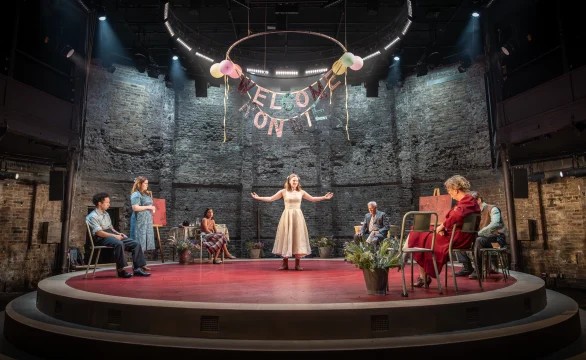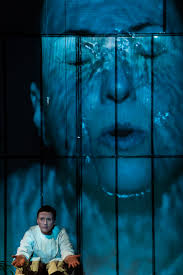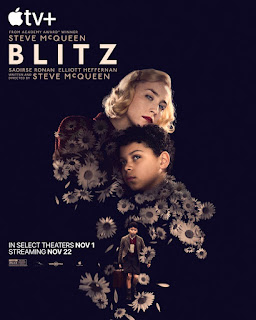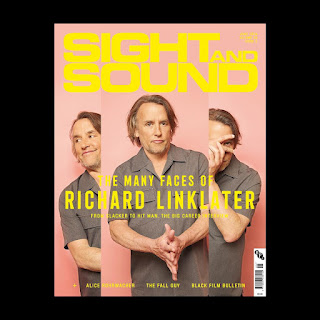Culminating in the sublime LIVET: Suite for the Earth concert, which brought together performers from Poland, Ukraine, Norway and Bulgaria, last year's Retroperspektywy proved an unforgettable edition of the international theatre festival, which is invariably a highlight of summertime in Łódź. And Retroperspektywy returned this year with a just-concluded edition marking a milestone: the 20th anniversary of its founder, Teatr CHOREA, whose activities encompass workshops with and training of diverse community groups, and, of course, the staging of its own inimitably creative concerts and shows.
 |
| Tomasz Rodowicz... and the CHOREA birthday cake |
Based at Fabryka Sztuki in Łódź since 2007, CHOREA's defining feature (or one of them) has been its merging of ancient traditions with practices associated with the 20th century avant garde (taking particular inspiration from the work of Grotowski) and cutting-edge contemporary physical theatre, generating dynamic performances combining song, text, movement, and dance.
The group's ethos has never been one of slavish reconstruction of past models. Rather, CHOREA has been all about exploring how ancient theatre forms can be mobilised to speak to current concerns (and enduring existential ones). As a company they're bridge-builders, alchemists, risk-takers, empowerers, and creators of unique theatrical experiences that attune audiences to the expressive capabilities of the human body and voice, providing a fusion of sensual and intellectual pleasures - also accomplished with a spirit of play.
 |
Exhibition:
Evocations - 20 Years of CHOREA |
Under the title "Przebudzenia" ("Awakenings"), this year's edition found CHOREA in a mood both reflective and celebratory. This was evident, for one, in the theme of the festival's accompanying exhibition, "Evocations: 20 Years of CHOREA," curated by Magda Milewski and Janusz Adam Biedrzycki, which presented a narrative of the group's activities accompanied by photos and a well-chosen physical "trace" of each live event through the display of a prop or costume. On Monday and Tuesday there was also the rare opportunity to watch filmed shows from the CHOREA archive.
 |
| Ola Shaya opening What's Demeter? |
What's more, the opening show of this year's edition, punningly titled What's Demeter?, offered an exhilarating rollercoaster ride through a diverse selection of songs and scenes from CHOREA's performance history - a bit like 2013's "50 Years on Stage" event by the British National Theatre, but much more excitingly done. With artistic supervision by CHOREA co-founder Tomasz Rodowicz and "interventions" by director Łukasz Kos adding a fresh eye, the evening was no mere cobbled together "Greatest Hits" package.
 |
| Elina Toneva and the company in What's Demeter? |
Instead, What's Demeter? worked as a profound, playful and cohesive experience in its own right, with a strong flow and meaningful transitions but also loose, improvisatory elements, as artists from the company's past and present took to the stage or joined in and sang from the audience.
 |
| Po Ptakach (After the Birds) in What's Demeter? |
Highlights were plentiful, from Ola Shaya opening the proceedings in cabaret style to quiz audience members on favourite productions and deliver a number from 2011's The Blue Parrot concert, to Sean Palmer unleashing his gorgeous gritty growl ("CHOREA in the house!") to score Rodowicz and Dorota Porowska's super-sensual pas de deux from 2005's After the Birds (Po Ptakach) - incidentally the first CHOREA performance I saw.
 |
| Ragnarok in What's Demeter? |
And even if you had seen some of the featured extracts before you would perforce experience them afresh here, since a major component of the event was the live filming of most of the performances by Kamil Wallace, with the images relayed on a large screen to achieve some startling juxtapositions.
Particularly overwhelming in this regard was the opening sequence of 2022's Ragnarok. This was already a uniquely haunting spectacle that seems to distill all human suffering and striving, fear and fortitude, as, to the celestial sound of Arvo Pärt's Stabat Mater, the performers slowly make their way across the stage towards the light as a tangled, straining collective. This time, with the variously pained or hopeful faces also presented in close-up on the screen, the piece combined the power of physical theatre with that of silent cinema, and reduced this viewer, for one, to tears.
 |
Joanna Chmielecka in What's Demeter?
|
On the solo side, Joanna Chmielecka delivered a physical and vocal Bruno Schulz-derived tour de force atop, under and whilst taking the legs off of a table, while Małgorzata Lipczyńska, Anna Maszewska (who is also the festival's indefatigable coordinator), and Julia Jakubowska reassembled for a scene from the latter's witty 2020 feminist fairytale revision Księżniczki (Princesses).
 |
| Dzień Dobry Pinky Mouse! in What's Demeter? |
A number from 2021's Dzień Dobry Pinky Mouse! took the already anarchic children's musical to a new level of hilarious mania. And the company's versatility is such that the next moment they could morph into the protagonists of 2015's Derby.Biało.Czerwoni (Derby. Red and White): rapping football fans ready for a ruck.
 |
| Maciej Maciaszek in What's Demeter? |
Threaded throughout were some soul-stirring interludes of choral singing that spoke to the group's deep roots, while the final section, from 2014's Vidomi - a piece originally developed in collaboration with visually impaired performers - was a delicious last tango in which the audience was invited to the stage to dance, bringing the performance to a perfect, bonding close as we then headed outside to the CHOREA birthday party. The whole evening was an invigorating and inspiring experience.
 |
| Zjem twój dżem |
The organisers also took the opportunity in this anniversary year to significantly spotlight the work of CHOREA's Intergenerational Group and its Older and Younger Children's Groups. Among several shows for family audiences, the Older Group presented the endearingly berserk Zjem twój dżem (I'll Eat Your Jam) which brought songs, some film noir spirit and a dose of well-judged social commentary to its tale of food, crime and cross-generational relations set in the Łódź district of Bałuty.
 |
Eden:
A Scenical Fairy Tale in Several Pictures
|
Made up of participants from ages 16 to 80, the all-female Intergenerational Group presented two shows: Pauza, and Eden: A Scenical Fairy Tale in Several Pictures. Pauza didn't come together for me, but Eden, directed by Biedrzycki, Magdalena Paszkiewicz, and Wiktor Moraczewski, proved a magical experience - something of a companion piece to the same team's also ecologically-minded Rój. Sekretne życie społeczne ("The Hive: Secret Social Life") from 2018.
Starting with a disarming scene of chat and comedy (look out for the troublesome deckchair), the piece evolved into an ambient evening of physical theatre, one that - through brilliant lighting (green and blue washes turning fiery red), sound, costumes and performances from the 13-strong cast - conveyed the kind of deep care for and attention to nature that Teatr Nowy's witless recent musical adaptation of The Secret Garden sorely lacked.
 |
Eden:
A Scenical Fairy Tale in Several Pictures
|
Each different section of Eden was clearly designed and delineated, but the show felt cohesive, and developed a very tender, affirmative tone, with the bodies of the cast eventually becoming the garden plants, blooming by night in a gorgeous final sequence. With audience members given seeds on our way out, the show offered a cleansing and restorative celebration of nature in the feminine.
 |
| Teraz wiesz, jak się czuję |
The invited companies this year included Grupa Performatywna Chłopaki, who presented Teraz wiesz, jak się czuję (Now You Know How I Feel), a lively, crowd-pleasing exploration of contemporary Polish masculinity that combined quiet heart-on-sleeve confessional moments with wild elements of stand-up, game show and porn-parody to interrogate social expectations and stereotypes, and point to possibilities of moving beyond them.
 |
| Hic Sunt Dracones |
The Czech company Teatr Divadlo Continuo provided one of the festival's most startling experiences with Hic Sunt Dracones, directed by Pavel Štourač. This piece probed the darker corners of consciousness and corporeality, creating some jaw-dropping images of dismemberment and bodily fragmentation, though not without a dose of absurdist black humour that Tim Burton or Terry Gilliam might enjoy, very much operating in the bold surrealist Czech tradition of Jan Švankmajer. The physical panache of the four performers - Sara Bocchini, Kateřina Šobáňová, Granada Gallego and Diana Khwaja - was enhanced by fantastic music and sound performed live by Jakub Štourač.
 |
| Magda Kuraś Quintet / Bilgoraj Triptych |
Two terrific concerts by female-fronted Polish bands also spoke to the CHOREA ethos of combining tradition with experimentation. With repertoires based on Konin-area melodies and South-Eastern Polish traditions respectively, the Tuleje trio (Gosia Zagajewska, Wojtek Kurek and Ksawery Wojcinski) and the Magda Kuraś Quintet (featuring Kuraś, Maciej Świniarski, Ziemowit Klimek, Tomasz Chyła, and Kuba Krzanowski) both took folk music in fresh directions, with jazz, rock, art song and improvised elements, to create rich, immersive sounds that felt totally organic.
 |
Eine Winterreise. A Winter Journey.
Schubert/ Müller/ Baczyński |
The festival's final show also centred music, this time from the classical canon. Contrasting with the expansiveness of What's Demeter?, the Festival closed with an intimate piece for three performers: an interpretation of Schubert's seminal 1827 song-cycle, Winterreise. Eine Winterreise. A Winter Journey. Schubert/ Müller/ Baczyński was co-directed by singer Łukasz Konieczny and dancer/choreographer Boris Randzio who also performed the piece, alongside accomplished pianist Nikolaus Rexroth.
The performance's innovations included Randzio's danced contribution - and the incorporation of poems by the great Polish poet Krzysztof Kamil Baczyński, who was killed in the Warsaw Uprising. The use of Baczyński's verse alongside the original Wilhelm Müller poems that Schubert based the work around developed a powerful counter narrative that suggested the building of a Polish-German cultural bridge in the context of the work's themes of alienation, melancholia and mortality.

Summing up CHOREA's achievements at the time of the company's 15th anniversary five years ago, the critic Piotr Olkusz described them as "the wealth of Łódź," crediting the group with forging "a new form of participation in culture and new responsibility for culture. They've slightly changed us." That definition still stands, and Awakenings was another edition of RPS that opened viewers' eyes, ears, minds and hearts to a rich variety of performances and expressions. As CHOREA enters its next decade I continue to wish that the company would push the "international" element of Retroperspektywy further in terms of audiences as well as performances, broadening out to be more accessible to non-Polish speakers and to ensure that their world-class work is more widely seen than ever. Still, as it is, this year's Festival offered some beautiful ways of celebrating CHOREA's past, being in the present, and looking to the future.
The 2024 Retroperspektywy Festival took place at Fabryka Sztuki in Łódź between 23 August - 1 September.
All performance images by Agnieszka Cytacka fotografia.














.jpeg)

.jpg)
.jpg)
























.jpg)




